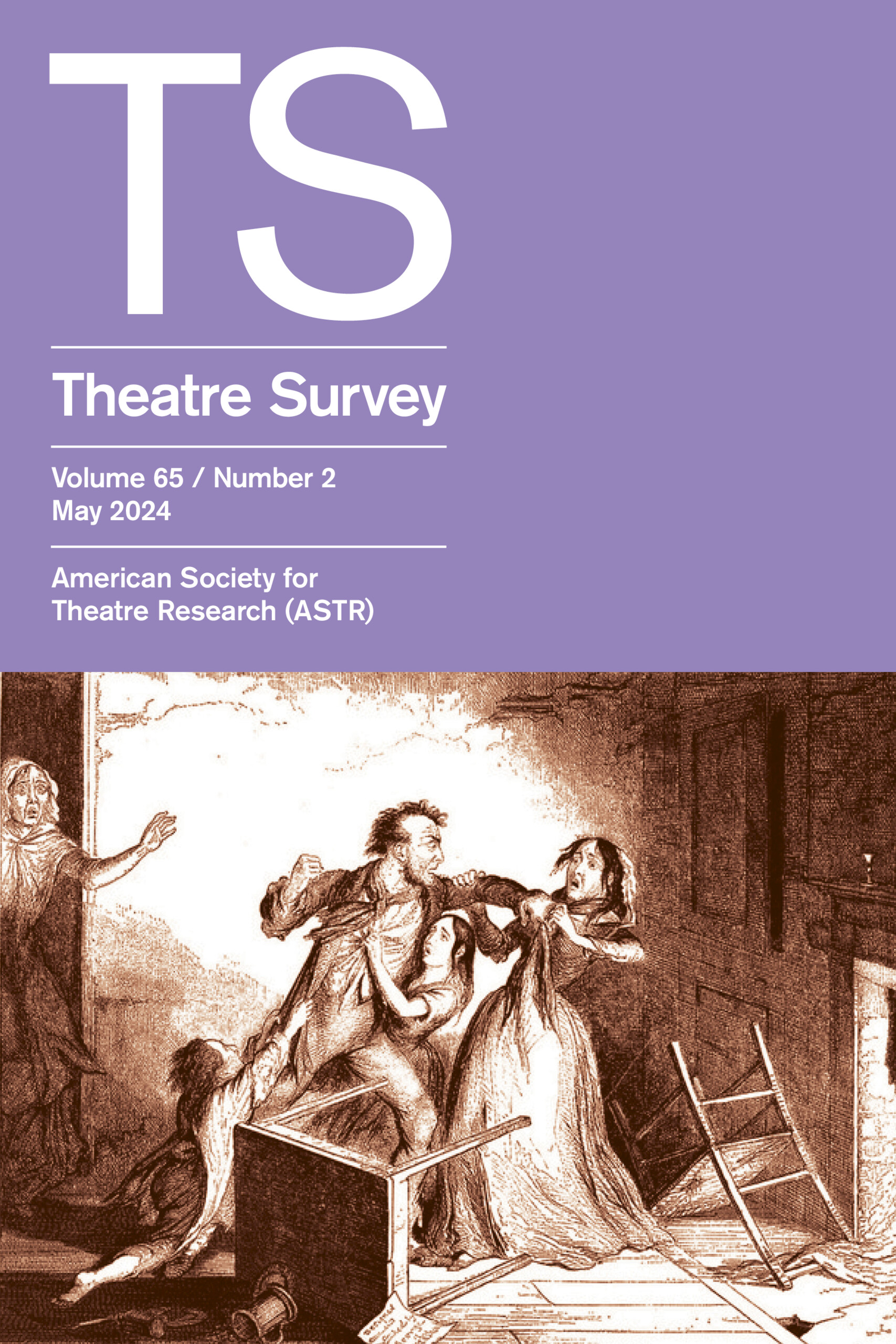Phrynichus: The Trailblazer of Greek Theatre
The world of ancient Greek theatre, a vibrant and richly woven tapestry of drama and storytelling, owes much to several pioneering figures, whose groundbreaking contributions have left an indelible mark on the cultural landscape. Among these, Phrynichus emerges as a pivotal character who not only brought innovative changes to the art form but also set a precedent with lasting influences that are still discernible in modern theatre.
The Historical Landscape of Ancient Greek Theatre
Before delving into the life and works of Phrynichus, it is essential to understand the context within which he operated. Greek theatre, originating as part of religious festivals dedicated to the god Dionysus, evolved from simple choral performance to a complex structure encompassing multiple actors, dialogues, and dramatic plots. The theatre might have begun as a rudimentary practice; however, it rapidly grew into a sophisticated art form during the 6th and 5th centuries BCE.
The early years of Greek theatre were dominated by figures such as Thespis, credited with introducing the first actor, and Aeschylus, known for adding a second actor, thereby revolutionizing the interactive dynamics of performance. It is within this bustling era of dramatic evolution that Phrynichus carved his niche.
Phrynichus: The Innovator
Phrynichus, a tragic playwright who flourished in the late 6th and early 5th centuries BCE, was one of the earliest of the great dramatists whose contributions significantly shaped the trajectory of Greek drama. Unlike his predecessors, Phrynichus is often celebrated for being among the first playwrights to explore complex emotional narratives and introduce contemporary historical events into theatrical productions.
One of his most notable contributions was his utilization of real events as the backdrop for his plays. This technique was groundbreaking at the time and allowed audiences to engage with familiar stories while reflecting on their collective experiences. His play "The Capture of Miletus" is particularly renowned for its daring portrayal of a recent, catastrophic loss endured by the Ionians at the hands of the Persians. It was a monumental work that combined factual history with dramatic representation, thus creating a new dimension for theatrical storytelling.
Although this play earned the ire of Athenian authorities, leading to its ban and a fine imposed on Phrynichus for "reminding the Athenians of their own misfortune," it underscored the power of theatre as a mirror to society, capable of evoking profound emotional responses from its audience. This play depicted the intense pathos and collective grief, setting a template for future dramatists who would explore the dramatic potential inherent in historical themes.
Pioneering Use of Female Characters
Aside from his historical narratives, Phrynichus is acclaimed for his role in expanding the portrayal of female characters in theatre. Prior to his interventions, women in Greek plays were often symbolic or secondary figures. By focusing on their emotional depth and narrative potential, Phrynichus gave female characters a voice and agency, long before it became a recognized norm.
His exploration in plays like "The Phoenician Women" offered layers of emotional complexity and political intrigue, which were revolutionary at the time. While it cannot be said that women had assumed a dominant role in Greek drama under his tenure, he unquestionably planted the seeds for a richer, more diversified portrayal of genders within Greek theatre.
The Phrynichian Legacy
Phrynichus's contributions serve as cornerstones, not merely as incremental steps in the evolution of Greek tragedy, but as expansive leaps in how narrative and realism could coalesce on stage. His works provided momentum for successive playwrights such as Aeschylus, Sophocles, and Euripides, who gleaned from Phrynichus's ability to merge emotion with historical retelling. This synthesis allowed future dramatists to further stretch the boundaries of entertainment, education, and communal reflection through theatre.
In contemporary terms, elements of Phrynichus's innovations are mirrored in modern theatrical productions that seek to illuminate pressing societal issues by weaving real events into compelling narratives. The integration of evocative historical storytelling continues to resonate, permitting audiences to confront and ponder the collective human experience.
In summary, Phrynichus broke through the constraints of traditional storytelling, propelling Greek theatre into realms that embraced both the grandeur of human tragedy and the intricate textures of historical reflection. While much of his works have not survived the passage of time, his influence undeniably lives on, entrenched in the very foundations of dramatic arts. As we continue to explore his legacy, Phrynichus beckons us to appreciate the interplay between history and drama in shaping our understanding of the world.
Phrynichus: A Radical Experimenter in Theatrical Form
Beyond the thematic innovations that Phrynichus brought to Greek theatre, his work is also notable for the formal experimentation he undertook. He is credited with contributing to the structural development of plays, notably through his creative use of choruses. Greek theatre at the time typically relied heavily on the chorus, a group of performers who provided background and commentary on the main action through song and dance. Phrynichus's innovation lay in his ability to integrate the chorus into the narrative more seamlessly, making it an essential component of the storytelling rather than a mere adjunct.
Phrynichus experimented with lyrical compositions and choral dances, crafting them carefully to enhance the emotional and thematic elements of his dramas. This experimentation with the chorus anticipated later developments by other playwrights, who would continue to explore and refine the role of choral elements within plays. Indeed, his pioneering approach to integrating the chorus set a standard for creativity and narrative function that other dramatists would build upon, thereby enriching the overall texture of Greek theatre.
Additionally, Phrynichus is believed to have been one of the first playwrights to introduce masks into performance, though this aspect remains a topic of scholarly debate. Masks would later become a distinctive feature of Greek theatre, enabling performers to assume multiple roles and embody different characters with ease. This use of masks allowed for greater flexibility in storytelling, as well as an expansion of theatrical possibilities in terms of character portrayal and audience engagement.
Political and Social Contexts in Phrynichus’s Work
An essential facet of Phrynichus's legacy is his ability to fuse dramatic narratives with the pressing political and social issues of his time. Living during a period of great political upheaval, Phrynichus was acutely aware of the potential for theatre to act as a commentary on contemporary events. His works often reflected the anxiety and instability of the era, tapping into the sentiments and concerns of his audiences with precision and insight.
As Athens found itself embroiled in the larger power struggles of the Greco-Persian conflicts, Phrynichus used his platform to comment on the consequences of war, the futility of human ambition, and the often-tragic outcomes of political decisions. This was not merely entertainment; it was an active engagement with the political currents of the day. His plays provided both a mirror to society and a voice to the public’s unspoken fears, employing the power of drama to question and challenge the status quo.
This approach was not without risk, as evident in the reaction to "The Capture of Miletus." Yet, it highlighted Phrynichus's bravery in using the stage as a forum for political dialogue and social reflection. By incorporating current events into his works, he forged a path for later playwrights and performers, showing that theatre could transcend mere storytelling to become a vital medium of social expression and critique.
Impact on Successive Generations of Playwrights
The ripples of Phrynichus’s influence extend far beyond his death, as his innovations inspired succeeding generations of dramatists. Among those profoundly impacted by his approach was Aeschylus, who often regarded Phrynichus as a mentor and cited him as a source of inspiration. Aeschylus is credited with adding a second actor to performances, further developing the complexity of drama and enhancing interactive elements, but it was Phrynichus's initial breakthroughs in emotion and realism that provided the blueprint for Aeschylus's advancements.
Similarly, other notable figures like Sophocles and Euripides integrated facets of Phrynichus's pioneering approach in their works. They not only expanded on his structural innovations but also delved deeper into the human condition, the collaborative role of the chorus, and the interlacing of personal and political narratives. These dramatists saw the potential unleashed by Phrynichus and seized upon the possibilities he presented for emotional depth and thematic exploration in theatre.
Phrynichus also laid the groundwork for the eventual development of comedic plays and satyr plays, which would become staples of Greek theatre. His understanding of drama as a fluid and dynamic art form encouraged later dramatists to experiment with genre and form, leading to a rich diversity of theatrical expression in the centuries that followed.
Phrynichus's Enduring Legacy in Modern Theatre
While much of Phrynichus's work has unfortunately been lost to history—owing, in part, to the fragility of ancient manuscripts and the passage of time—his legacy endures in the practice and philosophy of modern theatre. Today, dramatists and directors continue to draw inspiration from his pioneering spirit, particularly in the ways he used theatre as a medium for exploring socio-political issues and human emotions.
Contemporary playwrights who blend historical contexts with personal narratives owe much to Phrynichus's vision. His emphasis on emotional truth, use of real events, and portrayal of complex human experiences have become central tenets in present-day dramatic arts. Furthermore, his developments in choral integration and structural innovation remain fundamental to the creation and interpretation of dramatic works.
In essence, Phrynichus's work represents a crucial fulcrum in the evolution of theatre, marking the transition from mere performance to a reflective and thought-provoking art form. Through his daring and innovation, Phrynichus not only captured the imaginations of his contemporaries but also laid the groundwork for generations of artists to come. His enduring impact is a testament to the power of theatre as an ever-evolving mirror of human life.
Phrynichus: A Cultural Catalyst in the Evolution of Drama
To fully grasp the scope of Phrynichus's impact, it is essential to view him not just as a playwright but as a cultural catalyst who influenced the very essence of theatrical tradition. Through his pioneering vision, Phrynichus not only advanced tragedy as a dramatic genre but also laid the foundation for a culture of intellectual and artistic exploration that continues to thrive in theater today.
His willingness to address and confront the complexities of human emotions and historical realities reshaped the expectations of audiences. No longer content with mere entertainment, theatre-goers of his time began to anticipate and even demand more profound engagement with the content of plays. This shift in audience expectation elevated the role of theatre in society, compelling playwrights across the Mediterranean to rethink the mechanisms of storytelling. Phrynichus's blend of dramatic intensity and socio-political relevance provided a new template for theatrical production, emphasizing that art could be both reflective and transformative.
The Ritualistic Roots and Theatrical Innovation
Understanding Phrynichus’s innovations requires an appreciation of Greek theatre's ritualistic origins. Initially developed from religious ceremonies, early plays were deeply entwined with spiritual and communal practices. By introducing elements such as historical narratives and emotional depth, Phrynichus managed to enrich this ritualistic foundation. He retained the ceremonial importance of theatre while steering it toward greater complexity in both form and content.
His work demonstrated that theatre could effectively embody both sacred and secular dimensions. He achieved this duality by providing audiences with experiences that were both cathartic and enlightening, a principle that would play a vital role in the evolution of European and global theatre traditions. Drama, as effected by Phrynichus's interventions, became a means through which societies could explore the philosophical, ethical, and aesthetic dimensions of human life—a dynamic still intrinsic to modern dramatic arts.
Reviving Phrynichus in Contemporary Theatre
As the centuries have unfolded, artists and scholars have attempted to reconstruct and revive the essence of Phrynichus’s contributions. This endeavor reflects an ongoing fascination with the origins and development of dramatic form, as well as a desire to rediscover the roots of theatrical storytelling.
Modern adaptations of Phrynichus's practices often incorporate his bold integration of political themes and characterization into performances that resonate with present-day issues. Such revivals maintain the central premise that theatre serves as both a reflection of contemporary society and a portal into collective memory and shared experience. In these performances, audiences are encouraged to contemplate the parallels between ancient narratives and contemporary challenges, finding relevance and insight in the timeless human struggles that Phrynichus so adeptly depicted.
Many theatre practitioners today seek to capture the essence of Phrynichus’s methods, exploring new ways to engage audiences actively, provoke dialogue, and inspire transformative thought. By reintegrating ancient techniques of storytelling and performance, they pay homage to Phrynichus’s legacy while invigorating modern theatre with his time-honored and innovative spirit.
Philosophy and Pedagogy: Lessons from Phrynichus
Another enduring aspect of Phrynichus's influence lies in his contribution to philosophical discourse and educational practices. Theatre, as shaped by Phrynichus, became a vehicle for philosophical exploration, providing a stage not just for entertainment but for existential inquiry and moral questioning. The thematic depth that he infused into his plays encouraged audiences to grapple with ethical dilemmas, complexities of the human psyche, and the repercussions of social and political choices.
In modern educational contexts, Phrynichus’s approach offers valuable lessons for teaching narrative construction, emotional intelligence, and critical thinking. By analyzing his work, students and scholars alike can glean insights into the art of storytelling, the power of empathy, and the societal roles that art can fulfill. His works serve as educational tools that illustrate the delicate balance between dramatic expression and thematic substance, a balance aspiring playwrights and dramatists strive to achieve.
The Timeless Influence of Phrynichus
Phrynichus's legacy endures as a testament to his transformative impact on theatre. His innovations helped propel Greek drama from its nascent stages into a dynamic and influential art form that has shaped the pillars of Western cultural heritage. By exploring historical narratives and human emotions with unprecedented depth, Phrynichus cultivated a fertile ground for artistic expression that continues to nourish the dramatic arts.
In recognizing his contributions, we are reminded of the timeless nature of storytelling and its power to transcend epochs. Phrynichus’s work echoes through the corridors of history, inspiring artists to confront the challenges of their time with creativity, courage, and intellectual engagement. As such, Phrynichus stands as a pioneering figure whose vision extended far beyond the confines of his own era, leaving an enduring legacy that continues to stir the imagination and elevate the collective consciousness of theatre worldwide.























Comments